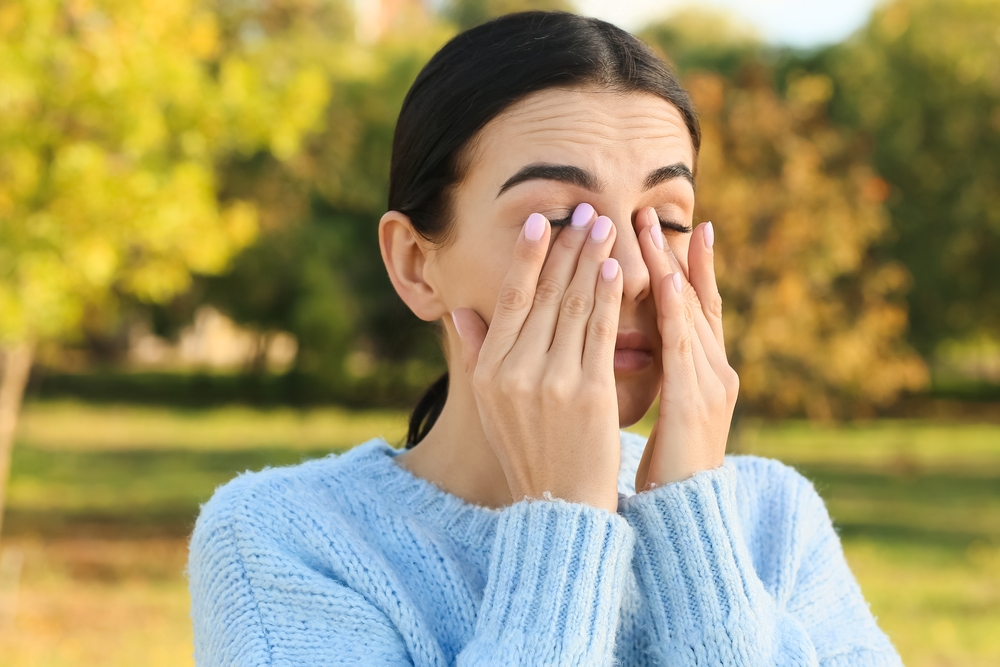
Allergies and eye disease are two very different medical conditions, but they can sometimes be mistaken for one another due to overlapping symptoms. It's not uncommon for people to dismiss serious eye conditions as mere allergies – a misunderstanding that can lead to delayed treatment and potentially severe complications.
What are Allergies?
Allergies are the body's overreaction to certain substances, known as allergens, that are usually harmless to most people. Allergens can be anything from pollen, dust mites, mold, pet dander, or certain foods. When these allergens enter your body, your immune system mistakenly identifies them as harmful and launches an attack.
Symptoms of allergies can vary widely, depending on the type of allergen and the individual's sensitivity. However, some symptoms are universal, such as sneezing, runny nose, itching, and watery eyes. These symptoms are often irritating and uncomfortable but generally not life-threatening.
Eye allergies, specifically, can cause redness, itchiness, a burning sensation, and clear, watery discharge. These symptoms can lead to a lot of discomfort and may impair your daily activities. But it's important to remember that these symptoms, while bothersome, aren't usually associated with vision-threatening conditions.
Understanding Eye Disease
Eye diseases, on the other hand, are a group of conditions that impair the function of the eye. They can be caused by a variety of factors, including genetics, age, injury, and certain medical conditions like diabetes or high blood pressure.
Eye diseases come in many forms, including glaucoma, macular degeneration, cataracts, and diabetic retinopathy, to name a few. Each of these diseases has its own set of symptoms, but some common signs include blurred vision, floaters or spots, loss of peripheral vision, and pain or discomfort in the eye.
Symptoms of eye disease can sometimes mimic those of allergies, causing confusion and misdiagnosis. For example, conditions like dry eye disease and blepharitis can cause redness, itching, and watery eyes – symptoms that are strikingly similar to those of allergies. However, these conditions can lead to more severe consequences if left untreated, underscoring the importance of proper diagnosis and treatment.
Distinguishing Between Allergies or Eye Disease
The overlap in symptoms between allergies and eye disease can make it challenging to identify the correct condition. However, there are a few key differences that can help you distinguish between the two.
First, consider the duration and timing of your symptoms. Allergies are usually seasonal and will often clear up once you're no longer exposed to the allergen. On the other hand, symptoms of eye disease often persist regardless of the season and might progressively worsen over time.
Secondly, take note of your response to over-the-counter allergy medications. If your symptoms improve with antihistamines or decongestants, it's more likely that you're dealing with allergies. However, if these medications offer no relief, you may be dealing with an eye disease.
When to Consult with an Optometrist
Understanding the difference between allergies and eye disease is crucial, but nothing replaces the expertise of a healthcare professional. If you're experiencing persistent eye discomfort or vision changes, it's essential to consult with an optometrist.
An optometrist can perform a comprehensive eye exam to detect early signs of eye disease that you may not notice. They can also help manage allergies by recommending effective treatments and offering advice on how to avoid triggers.
Don't wait until your vision is at risk before consulting with an optometrist. Regular eye exams can help detect potential issues early, increasing the chances of successful treatment and preserving your vision.
Ensuring Optimal Eye Health
Understanding the differences between allergies and eye disease is a crucial step in maintaining your ocular health. By being able to spot the symptoms and understanding when to seek professional help, you can ensure that your eyes remain healthy for years to come.
To learn more on how to spot the symptoms of allergies or eye disease, visit Insight Eyecare at our office in Las Vegas, Nevada. Call (702) 718-7163 to schedule an appointment today.








